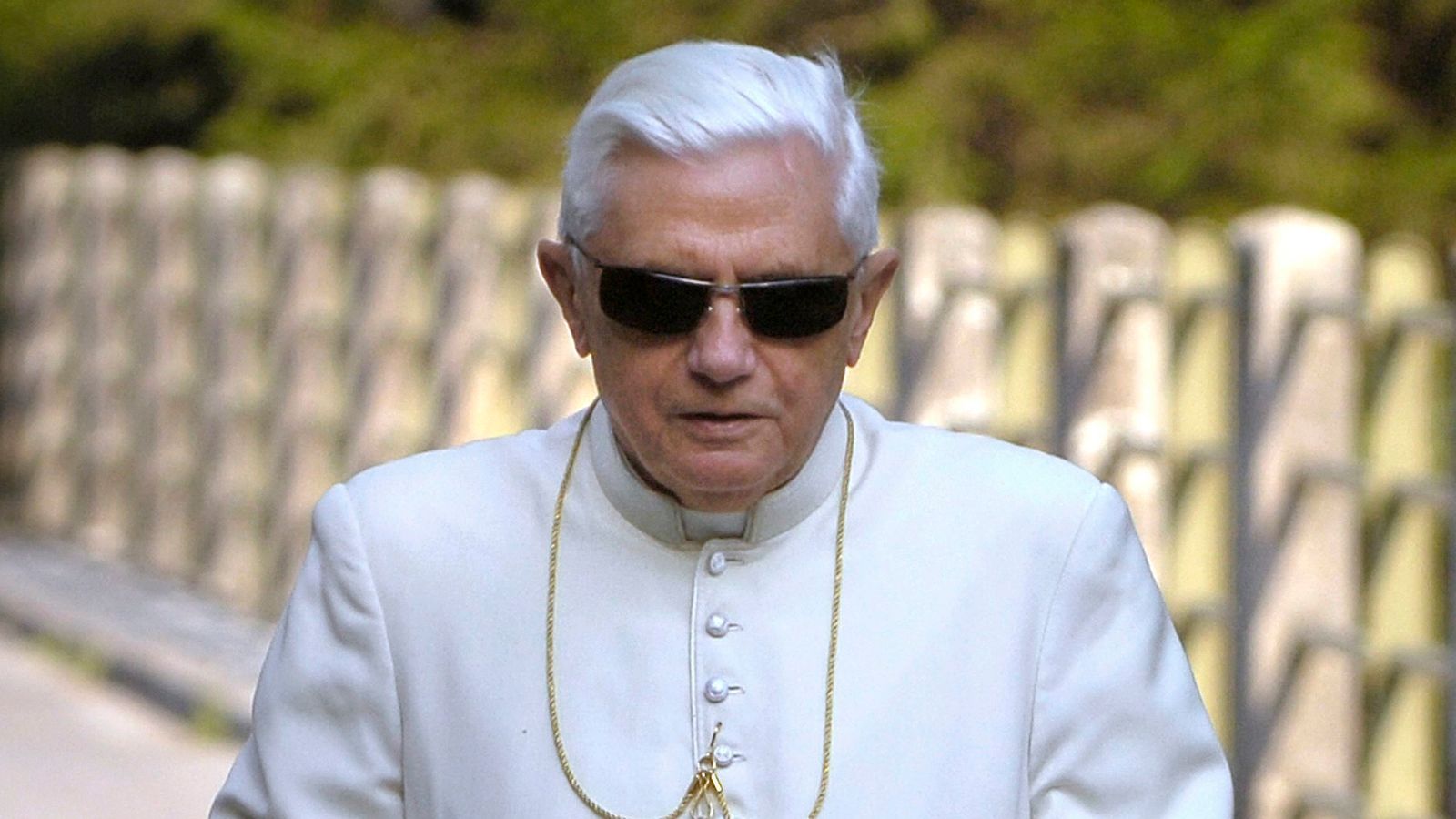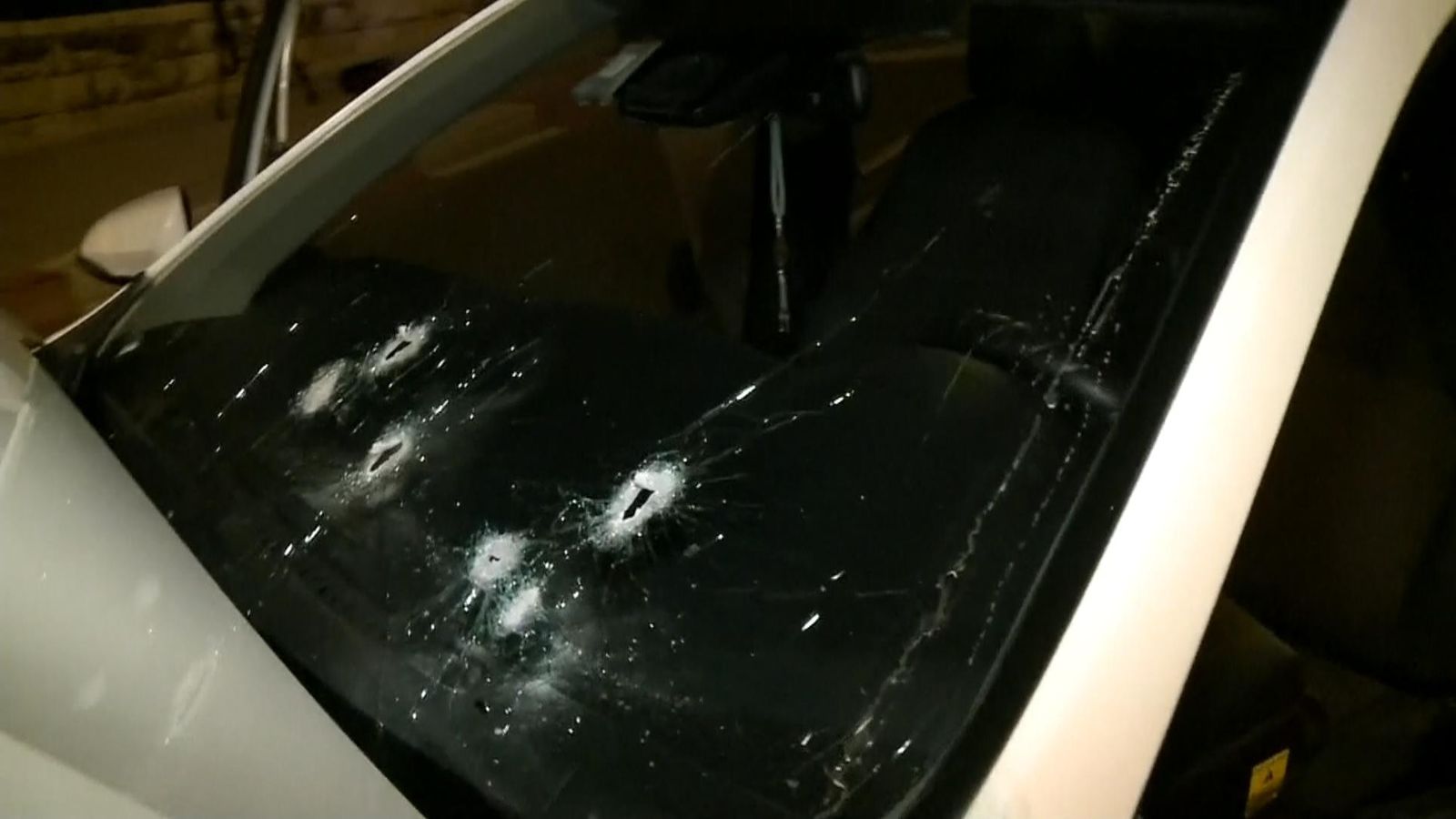We met an elderly man amongst the long stalks of sorghum in a valley – and a village – that local people called Alatti.
He wore a sun-bleached jacket with a ‘Coca-Cola’ patch on the front and the back. I asked him his name and he said: “Ahmed. My name is Ahmed Seid.”
He took his walking stick and tapped the ground as he walked along a line freshly piled earth on the hillside.
“I’ve buried nine people up here,” he said. “Muri Ali, Beyeneh Isa, Wushi Dowd….”
At first glance, Alatti looked like some present-day Garden of Eden. Lush mountain slopes framed the fields and pastures of the valley’s verdant floor.
Yet there were no goats or cattle to be seen and many of the farm buildings have been razed to the ground. We were looking at ‘no man’s land’ in Ethiopia‘s brutal civil conflict.
Last year, a long-running political dispute turned into all-out war after forces linked to the ruling party in the region of Tigray, the TPLF, attacked a number of national military installations.
Prime Minister Abiy Ahmed directed the country’s military to remove the TPLF in November but the rebels pushed back in a 10-month contest that has been marked by allegations of serious human rights abuses on both sides.
Evidence of both sets of combatants was readily available in Alatti.
Empty food tins handed out to members of Mr Abiy’s forces had been tossed in the foxholes dug by fighters from the TPLF, while incinerated farm buildings punctuated the landscape.
Local farmers blamed “the junta” for the violence – the name most people in Amhara use to describe the TPLF. Their fighters had held the land for several weeks in August we were told, stealing animals, burning food stocks and killing approximately 40 people who had decided not to flee.
“There was nothing left, all we buried were the bones,” said Ahmed Seid, who blamed packs of hyenas for eating their flesh.
“We just covered them up and shielded our mouths. That’s how we buried them. Many were sick because (the bodies) were decomposing.”
As we made our made our way out of the valley we made a final stop at the blackened timbers of what used to Seid Idriss’ farm.
I asked him whether he thought the TPLF had acted in revenge after allegations of destruction, rape and killings at the hands of Ethiopian and Eritrean troops in Tigray.
“I don’t think the people of Tigray have the intention to hurt us like this. This was the junta, they want to hurt the famers, the elderly and our children. That is (the junta’s) mission.”
This war has left a bitter mark and terrible memories, a legacy that may prove irreparable in a country that seems badly fractured.
“Do you feel safe now?” I asked the farmer as he sifted through the wreckage.
“I have fear because they have hurt us, they have hurt our mums and dads, our brothers and children. We only live in fear.”




